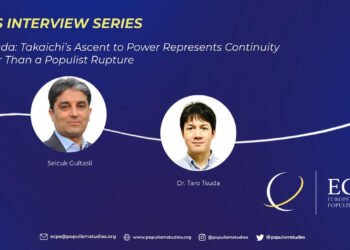In an interview with the ECPS, Professor Henri Barkey—born in Turkey and one of the leading US experts on Middle East politics—warns that Turkey has crossed a decisive threshold under President Erdogan. “Turkey has now become a full-blown authoritarian system,” he stated, arguing that Erdogan has removed the “competitive” element from competitive authoritarianism by subordinating the judiciary, jailing rivals, and even deciding opposition party leadership. While repression deepens, Professor Barkey sees a paradox: “The system is becoming more authoritarian, but society may be resisting much more than we realize.” He highlights youth-led mobilization, fears over arrested Istanbul Mayor Ekrem Imamoglu’s popularity, and Europe’s limited leverage, concluding that Erdogan’s overreach may ultimately galvanize opposition forces.
Interview by Selcuk Gultasli
In a wide-ranging interview with the European Center for Populism Studies (ECPS), Professor Henri Barkey, a leading scholar of Middle East politics who was born in Turkey, delivered a stark assessment of the country’s current trajectory under President Recep Tayyip Erdogan. “Turkey has now become a full-blown authoritarian system,” Professor Barkey stated, emphasizing that the transition from “competitive authoritarianism” to outright authoritarian rule marks a dangerous turning point.
Professor Barkey—Adjunct Senior Fellow for Middle East Studies at the Council on Foreign Relations and holder of the Bernard L. and Bertha F. Cohen Chair in International Relations at Lehigh University—has long studied Turkey’s political development. He previously directed the Middle East Center at the Wilson Center and served on the US State Department Policy Planning Staff during the Clinton administration.
Professor Barkey situated Erdogan’s consolidation of power within a broader historical and political context. Turkey’s modern history, he observed, has been marked by cycles of democratic openings and authoritarian retrenchment. Yet, despite repeated interruptions—from military coups to autocratic turns—“the Turkish public, by and large, has adapted and adopted a sense of democratic culture.” The resilience of ordinary citizens, he noted, remains a crucial counterweight to authoritarian encroachment.
At the heart of Professor Barkey’s argument is Erdogan’s dismantling of institutional safeguards. “He is turning Turkey into a complete authoritarian system because he controls the judiciary, and judges and prosecutors essentially do whatever he wants them to do,” Professor Barkey explained. Recent episodes—politically motivated trials, the dismissal of opposition leaders, and the manipulation of party leadership contests—demonstrate, in his view, the collapse of even the minimal competition that previously characterized Turkey’s hybrid regime. “In other words, Erdogan is now deciding who will lead the main opposition party.”
This tightening grip, however, is not without risk. Professor Barkey underscored a paradox: “There’s a kind of dialectic here: the system is becoming more authoritarian, but society may be resisting much more than we realize.” Millions of citizens, particularly the younger generations who have never known a Turkey without Erdogan, have mobilized in protests, demanding change. Professor Barkey noted that such resistance is difficult to gauge because “people are afraid to speak out” and reporting is restricted, but he insisted that “at some point, this is going to break.”
Erdogan’s own fear of rivals, especially Istanbul Mayor Ekrem Imamoglu, reflects this tension. Professor Barkey argued that the regime’s extraordinary measures to sideline Imamoglu—ranging from imprisonment to retroactive annulment of his university degree—offer “the clearest demonstration that he’s terrified.”
Professor Barkey also highlighted the role of external actors in shaping Erdogan’s room for maneuver. In his view, former US President Donald Trump “doesn’t believe in democracy” and effectively gave Erdogan “carte blanche” at home by refusing to criticize his repression. Europe, for its part, remains uneasy with Erdogan’s authoritarian aims and worried about migration pressures, but Professor Barkey noted that Erdogan feels confident he can “withstand European pressure” while focusing on demolishing the opposition. Ultimately, the combination of a permissive US stance under Trump and Europe’s limited leverage has reinforced Erdogan’s sense of impunity.
Ultimately, Professor Barkey’s analysis suggests both danger and opportunity: the danger of entrenched authoritarianism, but also the possibility that Erdogan’s overreach may galvanize opposition forces. As he concluded, “Authoritarian leaders always make mistakes… and I think Erdogan is already making them.”
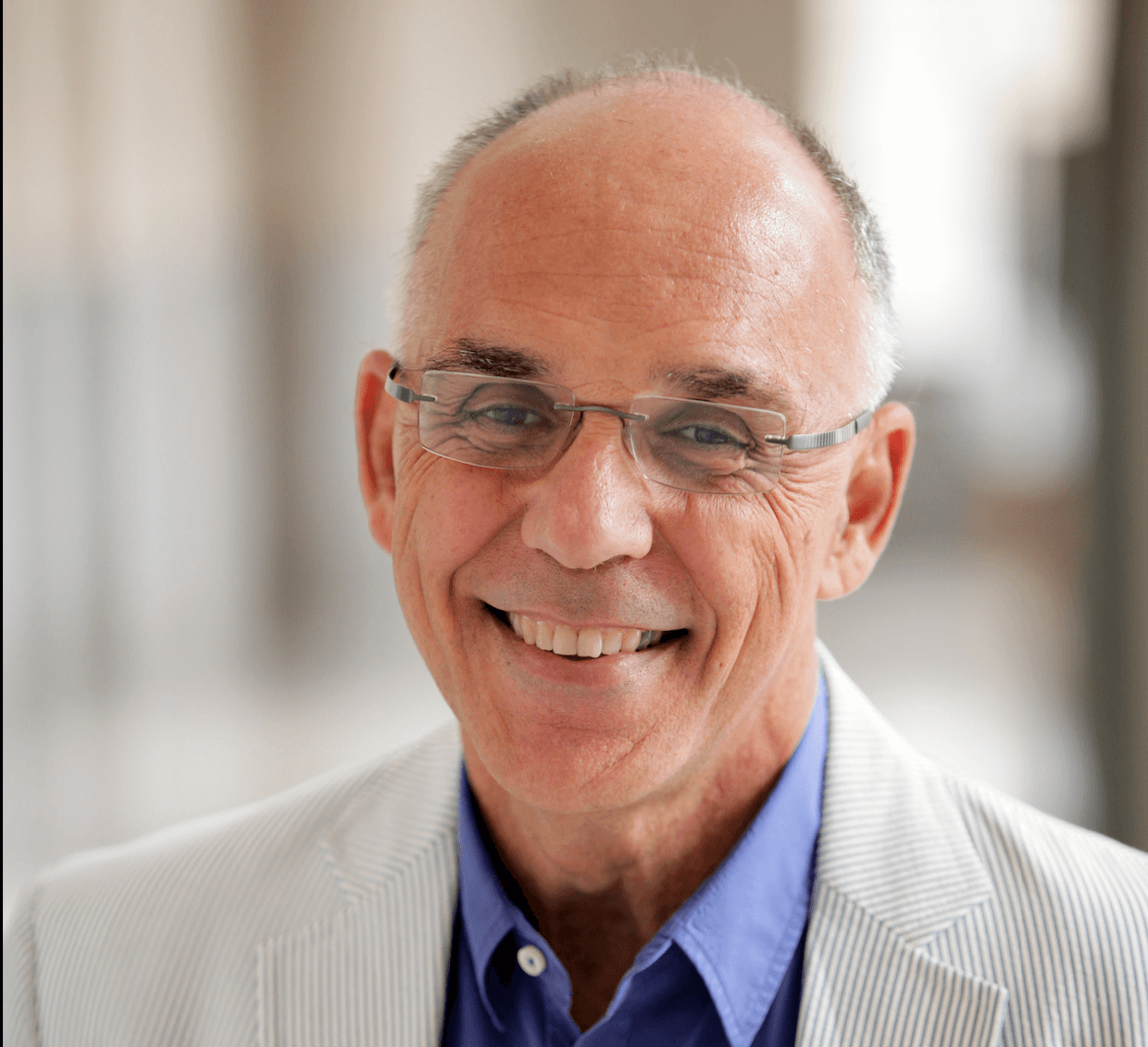
Here is the transcript of our interview with Professor Henri Barkey, lightly edited for clarity and readability.
Erdogan Realizes He’s Weak: People Are Fed Up and Want Change
Professor Henri Barkey, thank you very much for joining our interview series. Let me start right away with the first question: Turkish President Erdogan has long relied on a blend of populist narratives and authoritarian tactics to consolidate power. Given the backlash over Istanbul Mayor Ekrem Imamoglu’s imprisonment, the use of lawfare through corruption investigations, the appointment of trustees to CHP-led administrations, and the wave of nationwide anti-government protests, do you believe this strategy is now undermining rather than sustaining his authority? Could this moment mark a potential inflection point for his populist-authoritarian model?
Professor Henri Barkey: It’s interesting you say that, because I actually had a piece published in Foreign Affairs Online where I basically argued very strongly that Erdogan had made a terrible mistake by imprisoning the mayor of Istanbul, and I thought this was the end of Erdogan. Imamoglu is still in jail, and Erdogan is still the president, and he has gone ahead and imprisoned a lot more people—journalists and other members of the opposition party—and he is also trying to get rid of the leadership of the opposition party.
But to me, all of these are indicators that he realizes, after 23 years in power, that people don’t want him anymore. He has actually lost public support, and he has to resort to these incredible machinations to stay in power. In other words, he realizes that if there were elections any time now, he would not be re-elected, and his party would lose. In fact, in the last municipal elections in 2024, the main opposition party came in comfortably—comfortably for Turkey—as number one, and his party came in second.
What is going on today in Turkey is that Erdogan realizes he’s weak. He has support—it’s not that he doesn’t have support—but of course, he has the state machine, which he can always mobilize to get anything he wants done. However, for him, it must be very difficult to accept that he, who used to be genuinely popular in Turkey and who won elections genuinely, is now losing support. People are fed up. People want change. And it’s natural.
Imagine if you are 25, or maybe even 30 years old. All your conscious years have passed under one leader. People want change. So, it’s partially psychological, but partially also, of course, due to his responsibility for what’s going on in Turkey. The economy is not doing well. Inflation is high. He made terrible mistakes. And naturally, people want change.
The System Is Becoming More Authoritarian, but Society May Be Resisting
In your writings, you describe Erdogan’s evolution from a reformist leader promising EU-style democratization to a populist-authoritarian consolidating near-total power. How has this transformation shaped Turkey’s political trajectory and institutional resilience over the past two decades?
Professor Henri Barkey: Turkey—if you look at its modern history from World War II onwards—has experienced many different variations over the past 80 years. There have been democratic governments, military coups, and repeated interruptions in its political system. But what strikes me is that the Turkish public, by and large, has adapted and adopted a sense of democratic culture. Not perfect, not by any stretch of the imagination, but it exists. The Turkish public has a stake in elections and in the freedom to say what they want and to act as they wish.
Of course, there have been authoritarian periods—Turkey is going through one now—but you still see a certain resilience. The fact that 15 million people, after Istanbul Mayor Imamoglu was arrested, signed a petition to have him declared the candidate of the main opposition party is an incredible demonstration of people’s stake in the democratic system.
So, what’s happening is very interesting. On the one hand, underneath, there is this democratic culture. Again, I don’t want to exaggerate—it’s not perfect. But whose democratic system is perfect these days? Everything exists on a scale. What has happened in Turkey, however, is that Erdogan has essentially transformed the country into a, quote-unquote, “competitive authoritarian” system. Elections still take place, outcomes are largely determined, but there remains some element of competition. Certain offices may be won by the opposition, and the opposition can still win seats in Parliament, and so on.
But now he’s actually taking the competitive part out of competitive authoritarianism and eliminating it altogether. He is turning Turkey into a complete authoritarian system because he controls the judiciary, and judges and prosecutors essentially do whatever he wants them to do. We have seen people sent to jail for no reason whatsoever—simply because he doesn’t like them. Authorities have claimed that the main opposition party engaged in questionable practices in its primaries or conventions, and suddenly the justice system decides that leaders who were elected a few years ago should no longer hold their positions, and someone else should replace them. In other words, Erdogan is now deciding who will lead the main opposition party.
This is partly because he is clearly afraid of the current leadership, and especially of the mayor of Istanbul, who is in jail. Turkey has now become a full-blown authoritarian system, and I don’t think this is going to end well. By that, I mean authoritarian leaders always make mistakes, because there is never anyone around them to say, “Mr. President, Mr. Prime Minister, you shouldn’t do this; there may be consequences.” People always agree with them. So of course, mistakes are inevitable.
And I think Erdogan is already making mistakes. He has galvanized the opposition in a way that, if truly free elections were held today, he would be seriously doubted—he would not win. People can see that what he is doing is deeply unjust.
So there’s a kind of dialectic here: the system is becoming more authoritarian, but society may be resisting much more than we realize. It’s hard to see this resistance all the time because of restrictions—even on reporting. People are afraid to speak out. But at some point, this is going to break.
Imamoglu’s Jail Proves Erdogan’s Fear
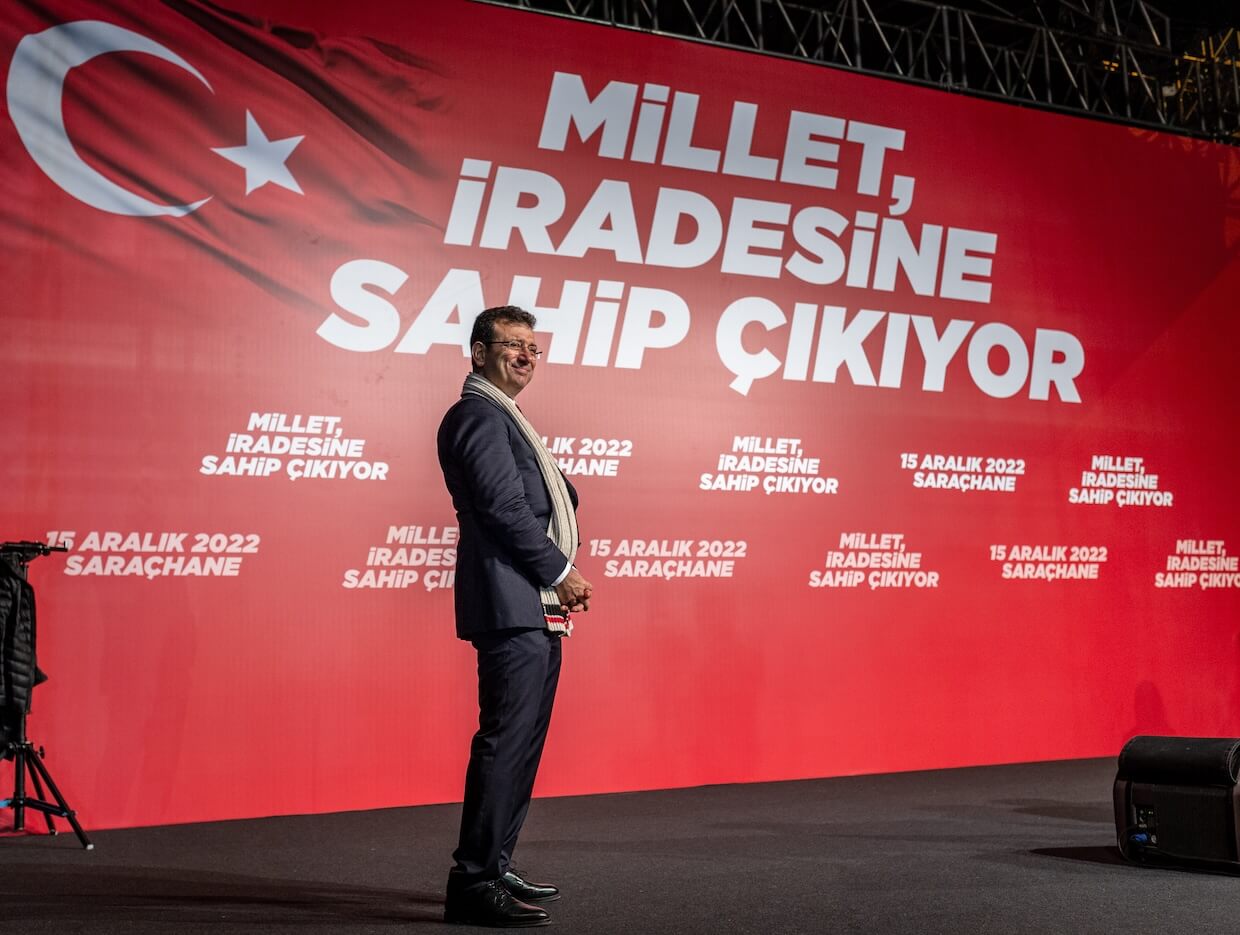
The mass protests following Imamoglu’s arrest have been driven largely by younger generations who have never known a Turkey without Erdogan. How significant is this demographic factor in shaping the country’s political future, and do you see parallels with youth-led anti-authoritarian movements elsewhere?
Professor Henri Barkey: As I alluded to earlier, if you are 30 years old, Erdogan became your Prime Minister when you were 7 or 8 years old. I’m picking age 30 as an example, but imagine: all your conscious years you’ve seen one leader. And the other thing, of course, is that in terms of the communication systems—television, radio, newspapers—they are completely dominated by Erdogan in Turkey. So, you wake up to Erdogan, you go to bed with Erdogan.
And I’m not saying there isn’t a youth that actually supports Erdogan—there is. But there is certainly a youth that says, “Look, we would like to see somebody else.” In 2023, during the national elections, the main opposition party presented as a presidential candidate Mr. Kemal Kilicdaroglu, who was unimaginative, did not appeal to the youth, and gave them no reason to galvanize. Now, for the first time in a long time, you have a leader on the opposition side. People criticize him, and that’s fine—he’s not perfect—but he has managed to capture the youth’s imagination. You see a great deal of mobilization, and that’s why they put him in jail.
Erdogan has many different court cases against him to keep him in jail. And in which country do you see a political leader arrested like this? He didn’t commit murder, he hasn’t done anything dangerous. But he has been in jail since March 19th. It’s been almost six months now, and he’ll be in jail for a very long time, because they don’t let you out—as if you were an axe murderer about to kill people. Journalists and others stay in jail for one or two years, and then suddenly maybe they decide to let you go, find you innocent, but you’ve already spent two years in jail.
We’ve seen this, of course, in the cases of the Kurdish political leader Selahattin Demirtas or the civil society leader Osman Kavala—they’ve been in jail for no reason whatsoever. And in the case of the mayor of Istanbul, they even annulled his university degree 30 years after he got it. Imagine if somebody decided to find some technicality and say, “Oh, my university degree is invalid, and therefore everything else I’ve done since then is invalid.” You can’t do that. But they come up with excuses to prevent an opponent from running against Erdogan.
The fact that Erdogan goes to such lengths to stop Imamoglu from running tells you how afraid he is of him. To me, that’s the best proof, the clearest demonstration, that he’s terrified.
Imamoglu’s Jail Time Only Raised His Standing
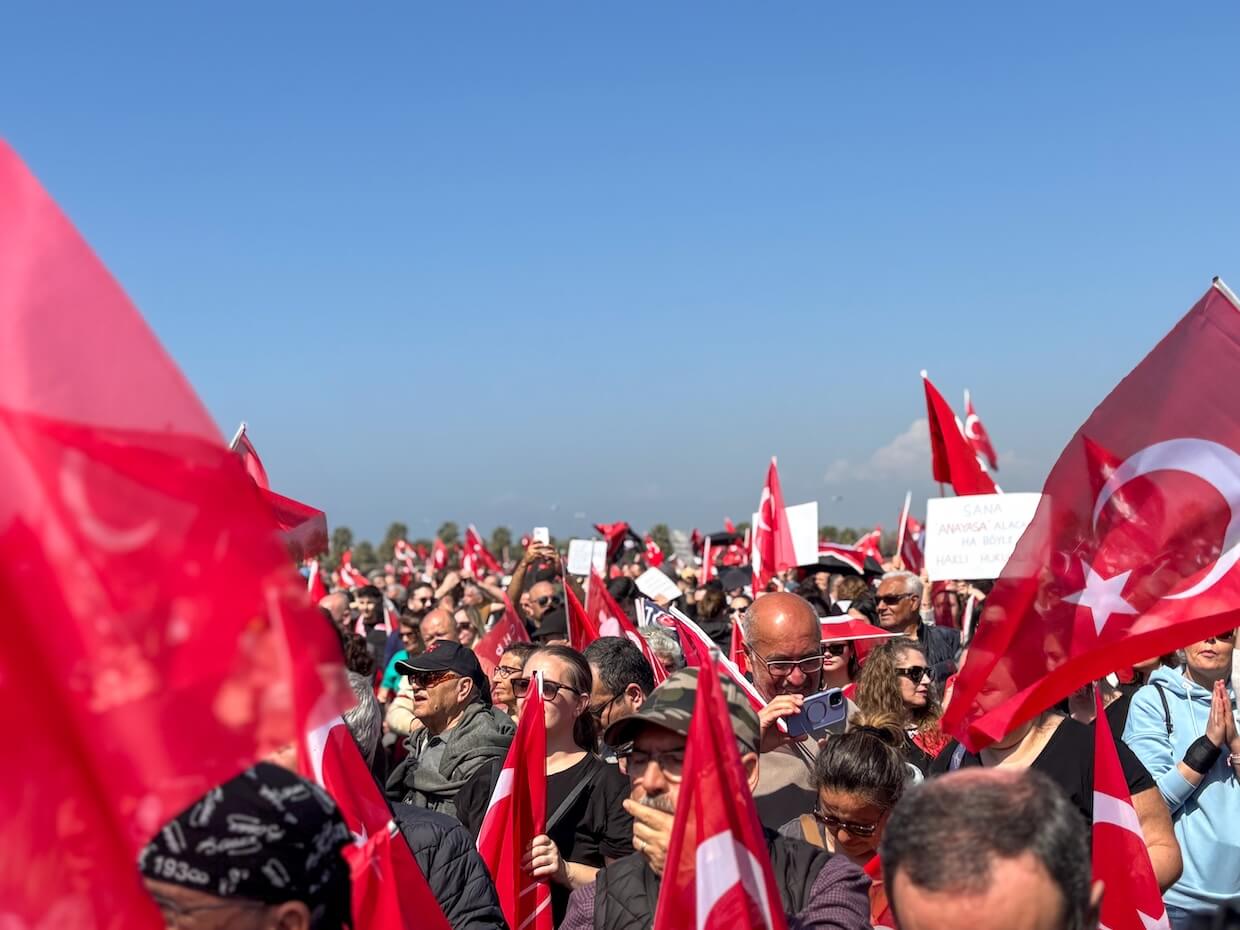
Imamoglu’s repeated electoral victories and rising popularity have made him Erdogan’s most formidable rival. By imprisoning him and pursuing politically motivated trials, has Erdogan inadvertently elevated Imamoglu into a symbol of democratic resistance, similar to Erdogan’s own trajectory after his imprisonment in the late 1990s?
Professor Henri Barkey: He is smart enough to have realized that he owes his popularity, at least in part, to the fact that, as mayor of Istanbul, he was kicked out of his job and spent a short time in prison. That actually enhanced his standing. Moreover, if you remember, not in 2024 but in the previous municipal elections, Imamoglu won with a small majority. Then the Erdogan government came up with an excuse, claiming irregularities in the elections, and ordered that they be held again. People saw through it. What happened? Imamoglu won by a much larger margin against the same candidate. Why? Because people were angered by Ankara’s political interference in their choices. Even those who did not vote for Imamoglu the first time decided to vote for him the second, just to punish Erdogan.
Anyone should have learned that lesson. He hasn’t. The alternative, of course, is that he knows the lesson, and this time he intends to prevent Imamoglu from running. He will find him guilty and keep him in jail so that he can go into the next elections unopposed. He is also trying to destroy the opposition party, aiming for it to nominate, or to be led by, the candidate who ran against him in 2023, because he knows he can outmaneuver him and thinks this is the way to secure another term.
So, I think that’s his intention. I believe he’s made up his mind. He knows he can’t beat Imamoglu, but he can beat the new CHP leadership. And unfortunately, we will see a lot more people going to jail.
Erdogan Wants to Take the Competitive Part Out of Politics
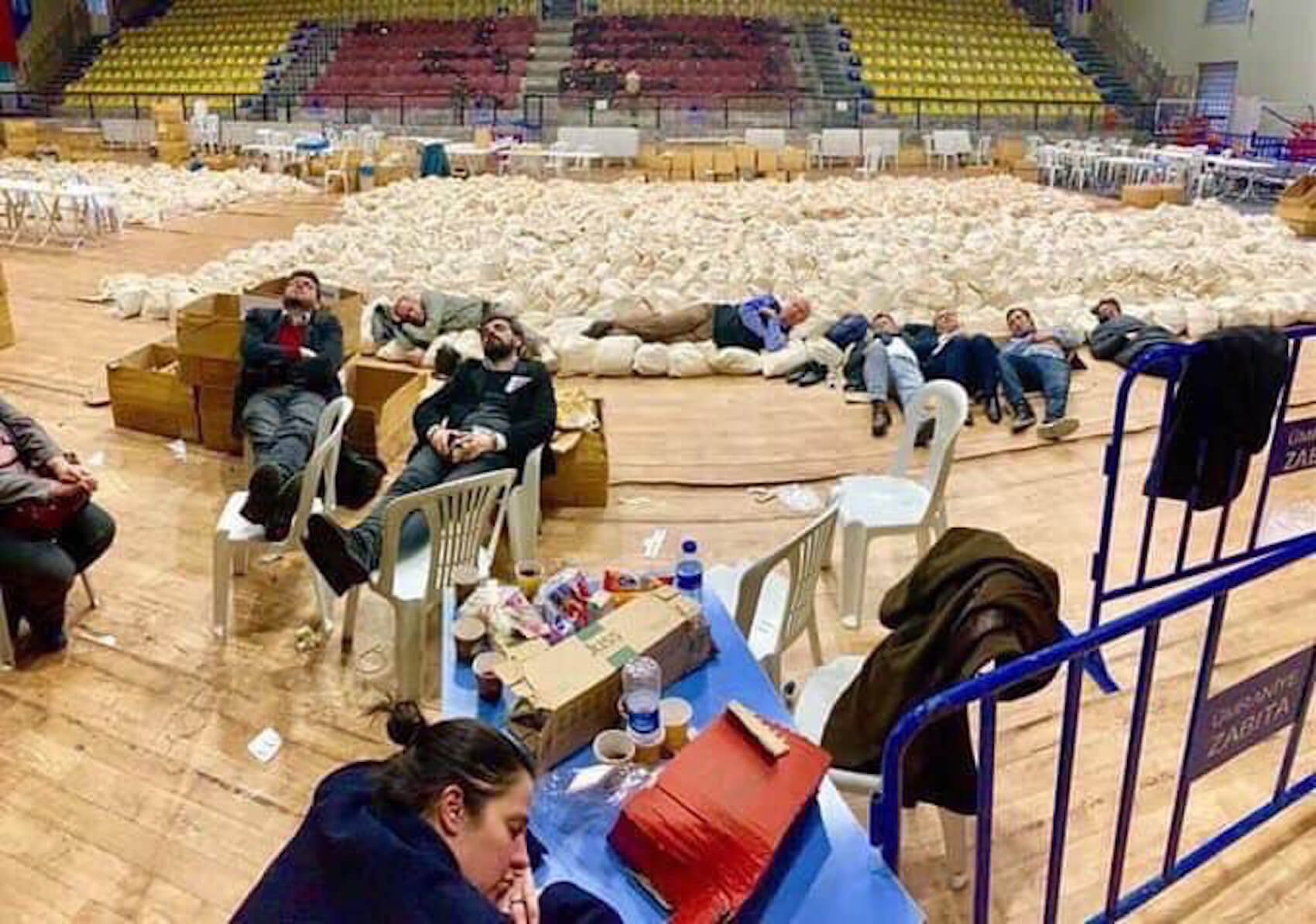
We’ve seen Erdogan’s government dismiss elected CHP mayors, replace them with trustees, and initiate corruption investigations against opposition-led municipalities. To what extent does this strategy reflect a deliberate effort to transform Turkey into a de facto one-party state, and could it ultimately backfire by strengthening opposition solidarity?
Professor Henri Barkey: I think my previous answers essentially say yes, of course. But you’ve noticed he’s now doing something else. He’s putting pressure on individual mayors of localities and forcing them to change parties and join his party. I saw today—though I forget where—that a deputy mayor was resigning from the main opposition party and joining Erdogan’s party. You can imagine the kind of pressure they must be exerting enourmous force her to do that, because it doesn’t make sense, when CHP is running high, to switch parties. But we’ve seen a number of cases like that.
So he’s not going to completely eliminate the main opposition party; he’s going to completely weaken it. He will make it what it was, let’s say, five years ago, before the opposition’s rejuvenation—when it won a few municipalities and a number of seats in Parliament, but had no influence and couldn’t do anything.
What’s very interesting is that all these corruption investigations have been initiated against opposition parties, opposition mayors, and sub-mayors. Not a single AKP mayor—or municipality—has been similarly treated. Can you really tell me there’s no corruption on the AKP side? No, but they’re all part of the system. That’s what I’m saying.
What Erdogan wants is to take the competitive part out of Turkey’s politics, because in his mind it should no longer be competitive. So it’s going to be only authoritarian. He’s turning Turkey into an authoritarian state.
Erdogan Cannot Control the Exiled Opposition Abroad
![]()
With the judiciary, media, and much of the bureaucracy subordinated to the presidency, are there any institutional safeguards left to counterbalance Erdogan’s authority? To what extent has the post-2016 purge of alleged Gulen-affiliated judges, prosecutors, academics, media, and civil servants accelerated Turkey’s democratic backsliding and hollowed out state capacity?
Professor Henri Barkey: Today the judiciary is completely under Erdogan’s control. If a judge rules in a way that Erdogan does not appreciate, he gets kicked out and sent somewhere else. The same applies to prosecutors. And there must be an internal state security apparatus that keeps tabs on all of these people, so that whenever pressure is needed, it can be applied.
So what’s left? What is the source of opposition today? I think, to a large extent, it’s the online environment—whether internet newspapers, journalists, or individuals with blogs and podcasts. Whenever Erdogan feels pressured, he tries to throttle the internet, slow it down, or impose bans on opposition networks by preventing them from broadcasting online. And they don’t have any other outlet, since they are not allowed to appear on mainstream television.
But that’s very hard to sustain all the time. It looks bad, and it can actually increase opposition if overused. When you slow down the internet, you slow it down for everyone—including people who simply want to buy things online. So it’s not clear to me that this is a viable long-term strategy. It’s more temporary and occasional. He did it this week with X, or Twitter.
So the online space remains, essentially, the main source of opposition. And you also have in Turkey a large number of journalists, academics, and public figures who are actively opposing him. This is what I meant earlier: there is still an element of democratic culture.
Now, you mentioned the Gulen movement. I know people who were professors at Gulen-owned universities. They were perfectly good academics, with international reputations, publishing internationally. They were not necessarily Gulenists. If you get a job at a university, you get it through established structures and processes. Yet all these people lost their jobs and became unemployable. That was a major blow to Turkish civil society and to the country’s intellectual world.
The Gulen movement was defeated, yes. But parts of it should not have been touched—for example, the universities. And by the way, I don’t know exactly what happened during the coup. To me, the coup remains an enigma. Maybe Gulenists were involved, but I think there were other factors as well. I suspect Erdogan knew ahead of time that a coup was coming, and when it happened, he took advantage of it. In the process, many people were smeared without due process.
This is something Turkish society will one day have to come to terms with. Gulenists who were guilty, yes—but not everyone was necessarily a Gulenist. And many suffered a great deal.
Another source of opposition, by the way, may be Turks who have emigrated to Europe. Yes, there is a large pro-Erdogan community abroad that tries to organize support. But there are also many dissenters now living in Europe, the United States, and elsewhere. They are a major source of opposition—and unlike in Turkey, Erdogan cannot control them, because he cannot throw them into jail.
You Can’t Have Democracy in Diyarbakir and Fascism in Istanbul

The PKK’s recent renunciation of armed struggle and ongoing talks involving Abdullah Ocalan and the DEM party suggest potential openings for renewed negotiations. How do you interpret Erdogan’s ambivalence toward these developments? Could a genuine Kurdish peace process pave the way for democratization, or is it more likely to be instrumentalized for political survival?
Professor Henri Barkey: To me, this is a very interesting situation because, with your question about democratization, how can you have… as a Kurdish leader once said, very correctly: you can’t have democracy in Diyarbakir and fascism in Istanbul. That is to say, what does it mean to democratize? Turkey needs to democratize. Turkey needs to deal with the Kurdish question. Turkey has to recognize that there are people who are not Turks, who have a different language, who would like to live as Turkish citizens but would also like to be able to express themselves in their own language or in any other fashion, and not have to go to jail for that.
The fact that the PKK has decided to renounce armed struggle is a good thing. They should have done it a long time ago, because the armed struggle wasn’t going anywhere. They had been completely defeated. They were just up in the northeast of Iraq, in the Qandil Mountains, stuck there with 158 Turkish bases in northern Iraq that completely dominate the area. One or two attacks a year is not what’s going to make the PKK the PKK. So the PKK was defeated, and they finally came to this realization. It’s good that they abandoned it. But I don’t think there is going to be a peace process. I don’t think this is going to go anywhere.
Because, first of all, Erdogan himself doesn’t believe in democracy. I mean, what did the opposition, the DEM party, say they want? They didn’t ask for anything specific. They would like, of course, prisoners to be released. They want to deal with what to do with the fighters who are abroad, in Iraq, who would like to be able to integrate into society. But basically, what the leadership has said so far is that they want democracy. They want to be able to participate. But this is not something Erdogan wants. Everything Erdogan is doing is, as I said, taking the “competitive” out of competitive authoritarianism and establishing a completely authoritarian state. So this is not going to work.
Now, it turns out that on the Kurdish side, the main leader who’s in jail—Ocalan—doesn’t happen to be a democrat either. So it’s a big question mark. He’s 80 years old now. He must be thinking about his legacy, and that’s why he’s trying to… but he also can’t make a deal that is going to be rejected by the democrats in Turkey. So he’s also stuck. I’m sure Erdogan’s idea was probably to convince the DEM party to vote for either a constitutional change, or more likely for early elections, that Erdogan would make sure he would win. That’s probably still his plan.
Bahceli’s Gamble on Kurdish Talks Faces Dead End
The one interesting question mark here is that, to a large extent, this whole process started with an initiative from Erdogan’s main right-wing coalition partner, the MHP, led by Devlet Bahceli, who used to be the most anti-Kurdish figure in Turkey. He said Ocalan should not be released, but should come to the Turkish Parliament and address Parliament. That was really an amazing statement by him, and he pushed the process.
I wonder if Mr. Bahçeli, who’s at the end of his life and has run the party without much to show for his years in power or as a party leader—what has he done, what has he accomplished?—maybe that was his way of creating an inheritance, if you will, for his followers: that he would bring domestic peace to Turkey. Well, if that’s his incentive, that’s fine. It doesn’t matter how you get there, as long as you do it.
So the big problem Erdogan has is: to what extent is Mr. Bahceli committed to continuing the process? And Mr. Bahceli himself must realize that, the way things are going now, the DEM party is not going to be able to make a deal with Erdogan. There will be talks—we’re going to see a commission has been created, supposedly there will be conversations—but this is not going anywhere. And in the meantime, Erdogan is destroying CHP, and this puts the DEM party in a terrible situation.
Trump Gave Erdogan Carte Blanche
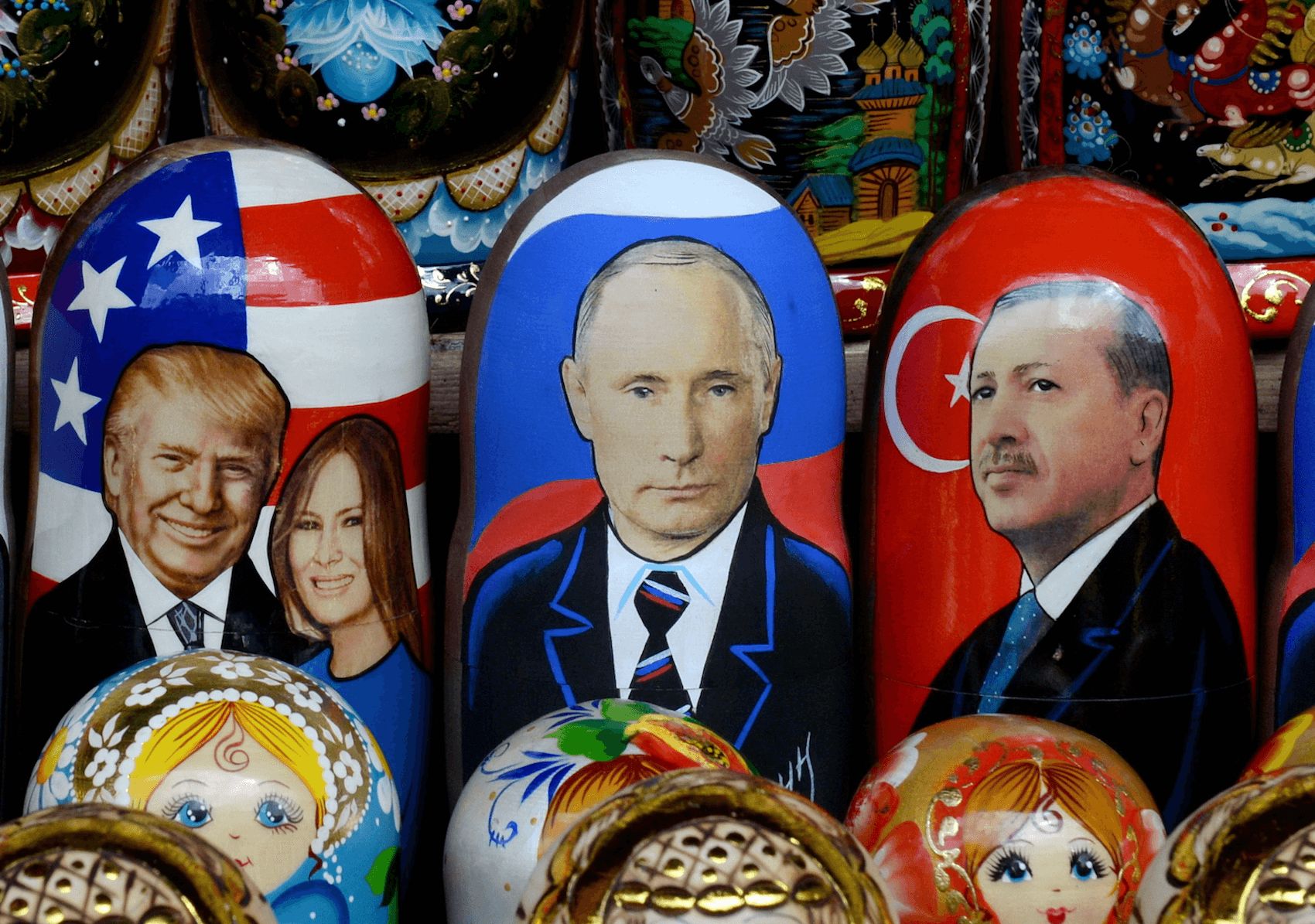
And lastly, Professor Barkey, given Washington’s strategic interests—from NATO cohesion to cooperation with Syrian Kurdish forces—how should the US and EU respond to Erdogan’s escalating repression of the opposition? Would stronger political and economic pressure risk reinforcing his anti-Western populist narrative, or is greater confrontation inevitable?
Professor Henri Barkey: Let’s be honest here. What Erdogan has done since March would not have happened if you had a different president of the United States. Here you have Trump, who is upset about Bolsonaro getting tried, and he imposes sanctions even on the judge who is judging him. And then he has not said a word about what’s going on in Turkey. Trump doesn’t believe in democracy. Trump is only interested in himself and his own interests. So, he’s decided that he likes Erdogan, and he can do business with Erdogan, and therefore, Erdogan can do whatever he wants. And that’s what Erdogan is doing.
Let’s say Biden or Kamala Harris had been at the White House today. Erdogan would not have done any of these things, because the US government would have really pushed very hard. Whether it was investments or any other type of help that the Turks would need, they would not get.
The Turkish economy is in terrible shape. Inflation is much higher than the official figures indicate, and it’s still at 30% for a modern economy. The Turkish economy may be in better shape structurally, but I think it is still fairly dynamic. You go to Europe, you see Turkish exports everywhere—and I’m not just talking about tomatoes and agricultural products. I’m talking about sophisticated products, industrial products, electronic products. The Turkish economy has a number of advantages that probably would do a lot better with improved economic management from Ankara. But it has still managed to perform not poorly, given the circumstances.
Biden, or a Democratic president, or even a Republican president who cares about this—I mean, George Bush would have been up in arms about it. Trump has given Erdogan essentially carte blanche. And this is why we have not seen any major Turkish incursions into northern Syria.
Now, it’s not that Trump is attached to the Syrian Kurds. He couldn’t care less about them. But Trump would like to take American troops out of Syria, while also realizing that ISIS is on the mend, ISIS is getting stronger, and he doesn’t want a major ISIS insurrection again like what happened back in 2014. So he’s probably still thinking about it and has decided to reduce the number of troops, but not pull them out. As a result, Erdogan hasn’t gone into Syria.
But the truth is, the Syrian Kurds do not threaten Turkey. It’s just something in some Turks’ minds, and it’s a way of galvanizing the population behind you. The Kurdish problem in Turkey is a long-standing one, and there are many people who still don’t trust the Kurds. And Syrian Kurds are Syrians—people forget that. The Turks complain that Syrian Kurds control a large chunk of territory. Yes, they do. They happen to be Syrian Kurds, by the way. Turkey itself controls an enormous chunk of Syrian territory in the northwest—as big as Lebanon. But that’s okay, Turkey can do that. So you have these anomalies.
Erdogan is careful, because with Trump you don’t know from one day to the next how he might turn on you. So Trump is letting him do everything he wants to do in Turkey, but doesn’t want him to go into Syria and mess things up there. Fine—Erdogan can live with that. So Erdogan is quite happy.
Erdogan Thinks He Can Withstand European Pressure
The Europeans are very unhappy with what’s happening in Turkey, because they realize what Erdogan’s aims are. And you’ve had a huge exodus of Turks who’ve gone to Europe, escaping the Erdogan regime. The immigration problem from the rest of the world through Turkey to Europe has always been Erdogan’s carte majeure. But whatever Europeans do or threaten, Erdogan is going to ignore, because he essentially thinks he has maybe 6 to 12 months in which he has to focus on defanging or demolishing the opposition party. Once he is done with that, he won’t do anything else. So he thinks he can withstand European pressure for this long.
The interesting thing about Trump is that there’s a way in which people are also afraid of him because of his unpredictability and his very tough talk. It doesn’t always mean anything—the Chinese have seen it, and the Russians know exactly how to react—but they’re big powers. Everybody else is afraid. I’ll give you an example. It’s a minor one, but the day before yesterday, the Iraqi Shia militia released an American researcher, Elizabeth Tsurkov, whom they had been holding for two years. They kidnapped her. And I think the only reason they released her—and this is why Trump’s craziness pays off—is that he probably threatened the Iraqi government and said, “You don’t get this person out…” And the Iraqi government said, well, they are the Shia militias, we don’t have control over them. And he probably said, “I know you have control over them, I know you can do it, do it now.” Biden and the Kamala Harris government have not tried very hard to get her out.
So Trump’s unpredictability is why Erdogan has to be careful. As long as Trump gives him, as I said, carte blanche at home, Erdogan is very happy, and he can get away with it. What’s more important to him? Winning the election, staying in power for another term. That’s all he cares about.
So the answer to your question is that not much is going to happen. The Europeans are not going to be very successful. Now, if Turkey were to go through a major economic crisis again, with major demonstrations and instability, that could be different. But given how the whole region is at the moment, I don’t think that’s in the cards right now. The Europeans are going to continue doing some business, they’ll put some constraints on Turkish economic exchanges, but there’s only so much they can do. They can criticize the Turks, but the Turks don’t care. Or I should say, the Turkish government doesn’t care. Erdogan has essentially won.


